Should diplomats still have immunity?
- Published
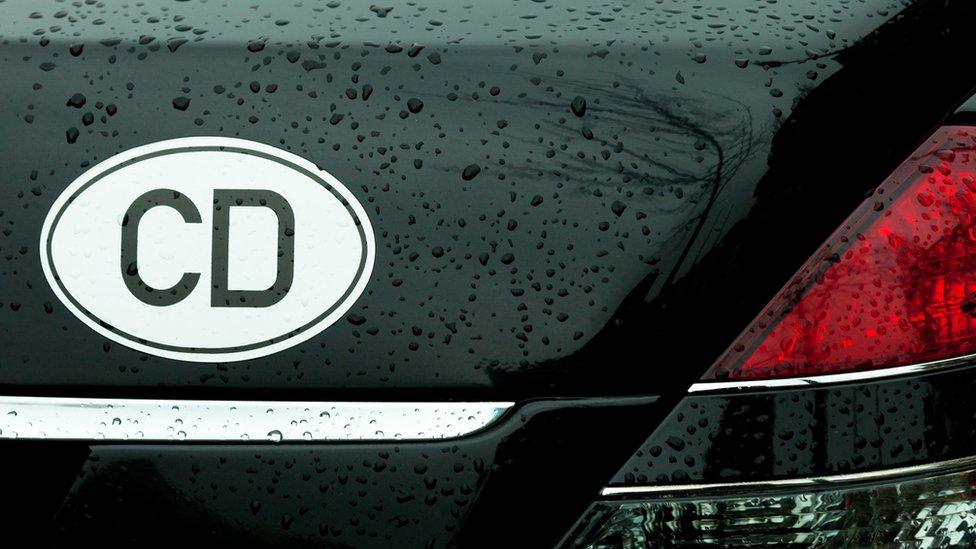
Diplomatic immunity puts officials from overseas above the law of the country in which they live. Is the system open to abuse?
Imagine breaking the law and no-one can stop you. Ignoring parking tickets. Never paying tax. Getting away with murder.
It's all possible, in theory, if you're an ambassador. Under the 1961 Vienna Convention, diplomats are immune from prosecution in their host country.
The system has long proved controversial - not least since PC Yvonne Fletcher was shot dead outside the Libyan Embassy in 1984 - and is once again under the spotlight thanks to an unusual battle fought in London's courts.
Saudi businessman Sheikh Walid Juffali launched a diplomatic immunity defence after his ex-wife, former Pirelli model Christina Estrada, made a claim on his estimated £4bn fortune. The court heard they separated in 2013.
In a move that had led to raised eyebrows, external in the press, Juffali was appointed in 2014 by the Caribbean island of Saint Lucia as its permanent representative to the International Maritime Organisation (IMO), which has its secretariat in London.
In February, Mr Justice Hayden ruled at the High Court this diplomatic status was "an entirely artificial construct" as Juffali had "no pre-existing connection to St Lucia" and there was no evidence that he had "any knowledge or experience of maritime matters".

Article 29, The Vienna Convention on Diplomatic Relations (1961)
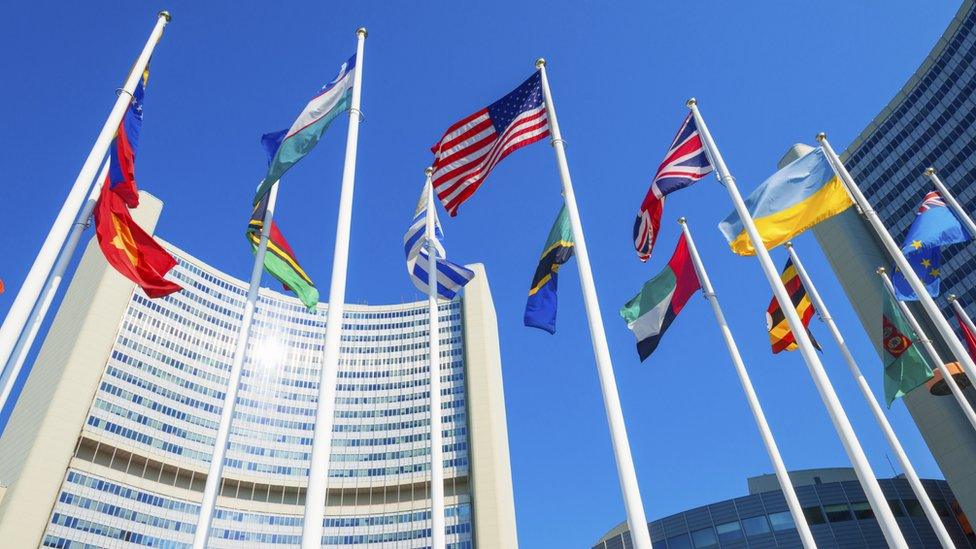
"The person of a diplomatic agent shall be inviolable. He shall not be liable to any form of arrest or detention. The receiving State shall treat him with due respect and shall take all appropriate steps to prevent any attack on his person, freedom or dignity."
Read the full document here, external

Last week, the Court of Appeal said the judge had been wrong to rule Juffali was not "entitled in principle to immunity". However, it dismissed the appeal on the basis that his diplomatic status was irrelevant as Juffali was a permanent British resident and thus liable to civil action, as permanent residents serving as diplomats are immune only from prosecution for official acts.
After the verdict, a spokesman for Juffali said he was "committed to maintaining his diplomatic duties" and noted that St Lucia's prime minister had testified to the "exemplary manner" in which Juffali had carried out his role. However, he was "dismayed" by the court's decision that he was a UK permanent resident.
In a statement, external, the government of St Lucia said it "has, and will always, follow full due process" in appointing diplomats and Juffali's case was no different. The IMO declined to comment.
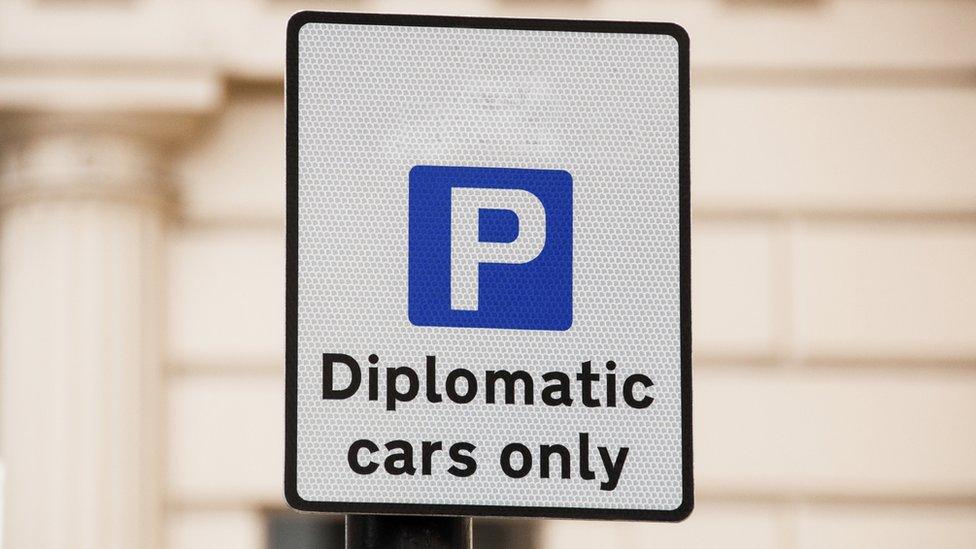
The convention of diplomatic immunity - intended to prevent embassy staff being harassed when operating in hostile countries - is a long-standing cornerstone of international relations that dates back centuries prior to being enshrined in the Vienna Convention.
However, the Juffali case is not the first time diplomatic immunity - which covers around 25,000 people in the UK, including families of some diplomats as well as the officials themselves - has attracted scrutiny.
In 2010 the then-Foreign Secretary William Hague released details of 18 crimes - including sexual assault, human trafficking, threats to kill and drink-driving - of which diplomats in the UK had been accused during 2010.
In December it was reported, external that embassy workers had run up £95m of unpaid congestion charges in London - because they argue it is a tax, not a charge for service, and thus exempt under the Vienna Convention.
It was ruled, external in February that because of his diplomatic status, Sheikh Hamad Bin-Jassim Bin-Jaber Al Thani - one of the world's richest men and the former prime minister of Qatar - could not be sued in the UK over claims a British-Qatari dual national was falsely imprisoned. Sheikh Hamad and the state of Qatar have denied any wrongdoing, external, with lawyers for the billionaire saying the man in question had been treated "in the manner that accorded fully with Qatari and international law".

Diplomatic immunity versus local law

In 2013, Indian deputy consul general Devyani Khobragade (pictured) was arrested in New York on suspicion of visa fraud - her role as a consul did not provide diplomatic immunity but the Indian government moved her to a position at the UN, where she would be covered by immunity. Khobragade denied any wrongdoing
Qatari Sheikh Khalid Hamad Al-Thani left the US abruptly after video footage emerged showing his Ferrari drag racing through Beverley Hills; whether or not he had diplomatic immunity was disputed, and it was never established who was driving anyway
Russian diplomat Dmitry Borodin was arrested in the Netherlands and detained for three hours by police, despite his diplomatic immunity; local media reported that police were called over alleged mistreatment of children and that Borodin was drunk when arrested. The Russian foreign ministry and Borodin vigorously denied the allegations
In 1997 Georgian diplomat Gueorgui Makharadze had his diplomatic immunity waived by his government after he caused a five-car pile-up in Washington DC resulting in the death of a teenage girl

Cases like these have led to calls for the whole system to be overhauled. Human rights barrister Geoffrey Robertson QC says the Vienna Convention made sense in the days of the Cold War - when embassy staff working in hostile nations were at risk of being framed or caught in honeytraps - but has passed its sell-by date.
"What it does is put diplomats above the law," he says. "It's a breach of Magna Carta.
"I think the Vienna Convention needs redrafting to limit diplomatic immunity. I don't think diplomatic immunity should extend to any civil case. It should only extend to criminal cases in limited circumstances."
He also argues that the definition of "diplomat" is too wide - encompassing not just ambassadors representing their nation in overseas embassies, but also at specialised agencies of the United Nations and other international bodies.
And while it's unusual for states to nominate foreign nationals as diplomats, as in the case of Juffali, there are concerns that the system could potentially be exploited by those trying to evade the court process.
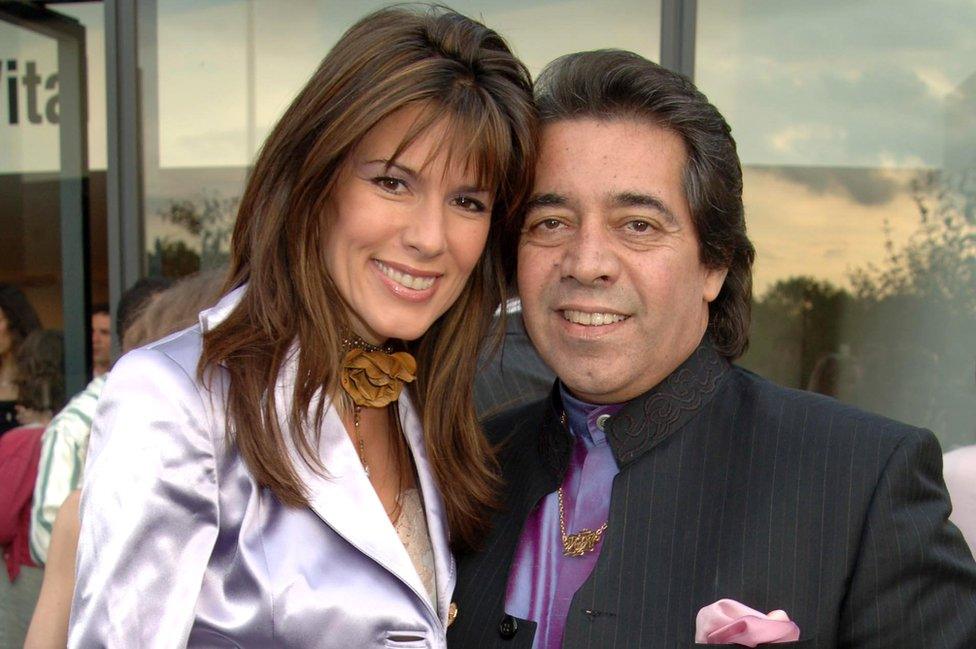
Sheikh Walid Juffali with his former wife Christina Estrada
"There are a number of countries around the world where you can effectively buy citizenship," says solicitor Mark Stephens, a former president of the Commonwealth Lawyers Association. There's a danger this could be taken a step further for the right price, he believes. "If you are a Mr Big behind a multi-million-pound fraud it behoves you to get a diplomatic passport so you have diplomatic immunity."
In practice, however, ambassadorial status does not put you entirely outside the boundaries of the law - unlike Joss Ackland's drug-smuggling South African consul-general in that definitive big-screen portrayal of diplomatic statecraft, Lethal Weapon 2, who waves his diplomatic passport while committing nefarious deeds.
The Vienna Convention allows host nations to declare persona non grata and expel diplomats - who, after all, are civil servants, liable to be prosecuted for serious offences in their own country.
In exceptional cases, they can be brought to justice in the host nation. After Georgian diplomat Gueorgui Makharadze, who had been drinking heavily, killed a teenager in a car crash in Washington, DC in 1997, US authorities asked Georgia to revoke his immunity. They did so, and Makharadze pleaded guilty to involuntary manslaughter. And in November 2015 a Libyan man was arrested on suspicion of conspiracy to murder PC Fletcher as a result of new lines of inquiry opening up following fall of the Col Muammar Gaddafi's regime.
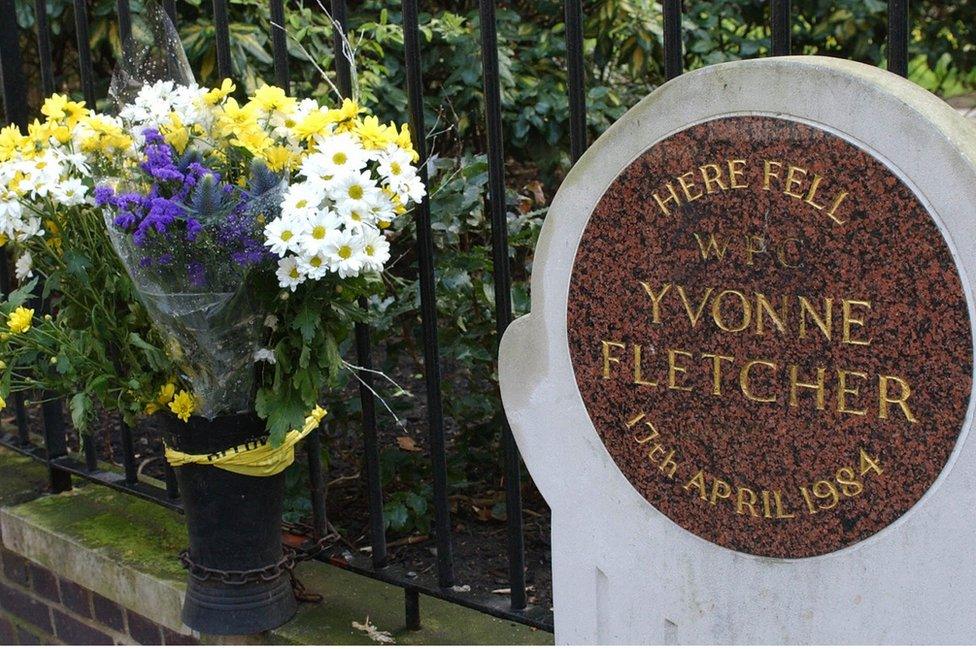
Supporters of the system say it is vital to prevent ambassadors and other embassy staff being harassed and hauled before courts on spurious grounds in an effort to prevent them doing their job. "It's an essential tool. It protects our diplomats serving abroad," says Craig Barker, professor of international law at London South Bank University. He adds that it is up to the Foreign and Commonwealth Office (FCO) to block any diplomatic appointments that appear suspicious or to expel any who commit serious offences.
A spokesman for the FCO says diplomatic immunity allows British officials to represent the UK's national interests around the world, even in hostile regimes. He adds that the system is not intended to benefit individuals personally and the Vienna Convention expects diplomats to abide by the law of their host countries. "The UK takes a firm line with diplomatic missions whose diplomats commit offences and in the most serious cases we will demand they withdraw the individual from the country."
Foreign Secretary Philip Hammond had criticised the high court judge's decision to strip Juffali's immunity, and the FCO submitted an opinion to the Court of Appeal saying the original High Court judge had "erred" in doing so. The FCO did not, however, intervene in the ruling that Juffali was ineligible for immunity due to being a UK resident.
The system may be as old as statecraft itself, but the debate is likely to continue.
Follow Jon Kelly on Twitter @mrjonkelly, external
Subscribe to the BBC News Magazine's email newsletter to get articles sent to your inbox.